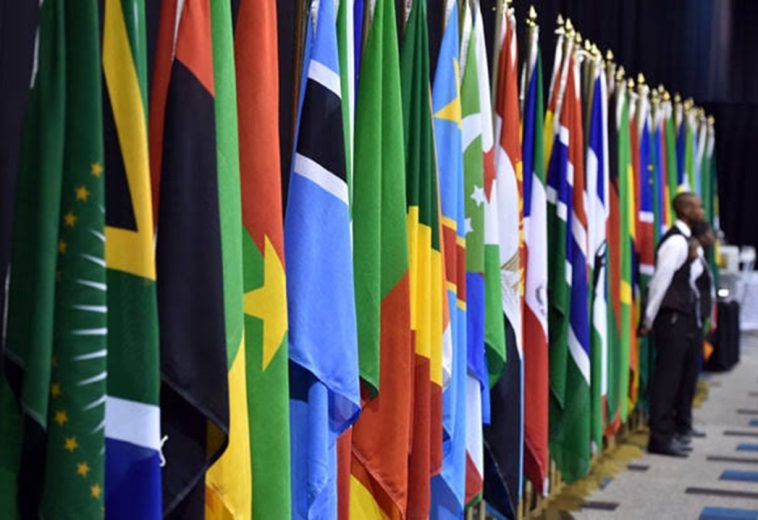Artificial Intelligence (AI) is not merely a buzzword; it is a transformative force reshaping the global landscape. In Africa, a continent renowned for its resilience and innovation, AI is becoming a cornerstone of economic and social development. Despite various challenges, the adoption and integration of AI across diverse sectors on the continent demonstrate the untapped potential and promise of this technology.
The African Union Commissioner for Infrastructure and Energy, H.E. Dr. Amani Abou-Zeid, once remarked that AI holds transformative potential for Africa, driving the digital revolution and impacting sectors such as healthcare, agriculture, education, finance, and public services. It offers unique opportunities to accelerate the aspirations of Agenda 2063 and the Sustainable Development Goals (SDGs), stimulate economic growth, and create employment, particularly for women and youth.
READ ALSO: AI for Agriculture: The African Perspectives
“The adoption of AI is growing across Africa. Google reports a 270% increase in AI-related searches over the past year, and research from the 2024 Stanford AI Index shows that 27% of Kenyans use ChatGPT daily. Several African universities, including those in Ghana, Uganda, and South Africa, have established notable AI labs focusing on social impact,” noted H.E. Dr. Amani Abou-Zeid.
Globally, the Artificial Intelligence sector is projected to reach a market size of US$4.92 billion by 2025. Furthermore, the market is expected to grow at a compound annual growth rate (CAGR) of 27.43% from 2025 to 2030, reaching US$16.53 billion by 2030. The largest AI market will be in the United States, with an anticipated size of US$66.21 billion by 2025.
Currently, Africa accounts for just 2.5% of the global AI market. However, emerging applications have the potential to significantly impact the continent’s economic growth. Projections suggest that AI could contribute an additional US$2.9 trillion to Africa’s economy by 2030, according to Artificial Intelligence for Development (AI4D) Africa.
A GSMA report titled “AI for Africa: Use Cases Delivering Impact” highlights over 90 AI use cases identified in leading technology markets such as Kenya, Nigeria, and South Africa. Developed through extensive research and interviews with leaders from civil society, NGOs, academia, and the private sector, the report underscores how these applications can drive socio-economic development and address climate challenges.
As of 2023, Africa’s AI market was valued at approximately $1.2 billion, indicating significant strides in AI adoption. Projections suggest that the market could grow to $7 billion by 2030, driven by increased investments, a growing tech-savvy population, and greater interest from governments and the private sector.
Experts predict that by 2030, AI could inject USD 2.9 trillion into Africa’s economy, leading to an annual GDP increase of 3%, lifting 11 million Africans out of poverty, and creating 500,000 jobs each year. African Telecommunications Union (ATU) Secretary General John Omo noted Africa’s current 2.5% share in the global AI market as a missed opportunity, but he highlighted the steps needed to tap into this potential.
Countries like South Africa, Kenya, and Nigeria are leading the charge in AI adoption. South Africa’s National Artificial Intelligence Strategy provides a comprehensive framework to foster innovation and address socio-economic challenges. Kenya, known for its vibrant tech ecosystem, is leveraging AI in sectors such as agriculture and finance, while Nigeria is using AI to revolutionise healthcare and education.
AI Applications Across Sectors
• Healthcare: AI tools are enhancing diagnostics and predictive analytics. In Kenya and Nigeria, AI-powered systems are improving the detection of diseases such as malaria and tuberculosis, significantly reducing mortality rates.
• Agriculture: With over 60% of Africa’s population reliant on agriculture, AI-driven solutions like precision farming and weather forecasting are helping farmers optimise yields. Ghana and Rwanda have seen notable success in using AI for crop monitoring and pest control.
• Financial Services: AI is pivotal in the rapid expansion of digital financial services. More than 200 million Africans now benefit from AI-powered systems that enhance fraud detection and streamline customer experiences.
• Education: AI is transforming education through adaptive learning platforms. South Africa is integrating AI into its education system to personalise learning experiences, ensuring that students from diverse backgrounds receive tailored support.
Challenges to AI Adoption
Despite these advancements, Africa’s journey with AI is not without its hurdles:
• Infrastructure Deficits: Limited access to electricity and internet connectivity in rural areas hampers AI integration.
• Data Privacy Concerns: The lack of robust regulatory frameworks raises ethical questions about AI usage.
• Funding Constraints: Many startups and governments face challenges in securing the capital necessary to develop and deploy AI solutions.
Projections and Future Trends
The future of AI in Africa looks promising, with several trends emerging:
• Job Creation: AI is expected to contribute to the creation of over 10 million jobs by 2030, particularly in tech, finance, and agriculture.
• Education and Research: Countries like Morocco and Egypt are incorporating AI into their curriculums, while Rwanda has partnered with Carnegie Mellon University to establish AI research hubs.
• Investment Growth: AI-focused startups are attracting significant funding, with venture capital investments in African tech ecosystems expected to surpass $10 billion annually by 2030.
AI and Sustainable Development
AI is not only a tool for economic growth but also a catalyst for achieving the United Nations’ Sustainable Development Goals (SDGs). In healthcare, AI applications are reducing maternal and infant mortality. In agriculture, they are contributing to food security. Additionally, AI plays a critical role in combating climate change through predictive analytics that aid in managing natural disasters.
Africa’s journey with AI reflects the continent’s innovative spirit and determination to harness technology for development. While challenges remain, the progress made so far is commendable, and the future projections are even more promising. As governments, the private sector, and international partners collaborate to overcome existing barriers, the future of AI in Africa is poised to reshape the continent’s socio-economic landscape. The key lies in ensuring that this growth is inclusive, sustainable, and ethically sound.




